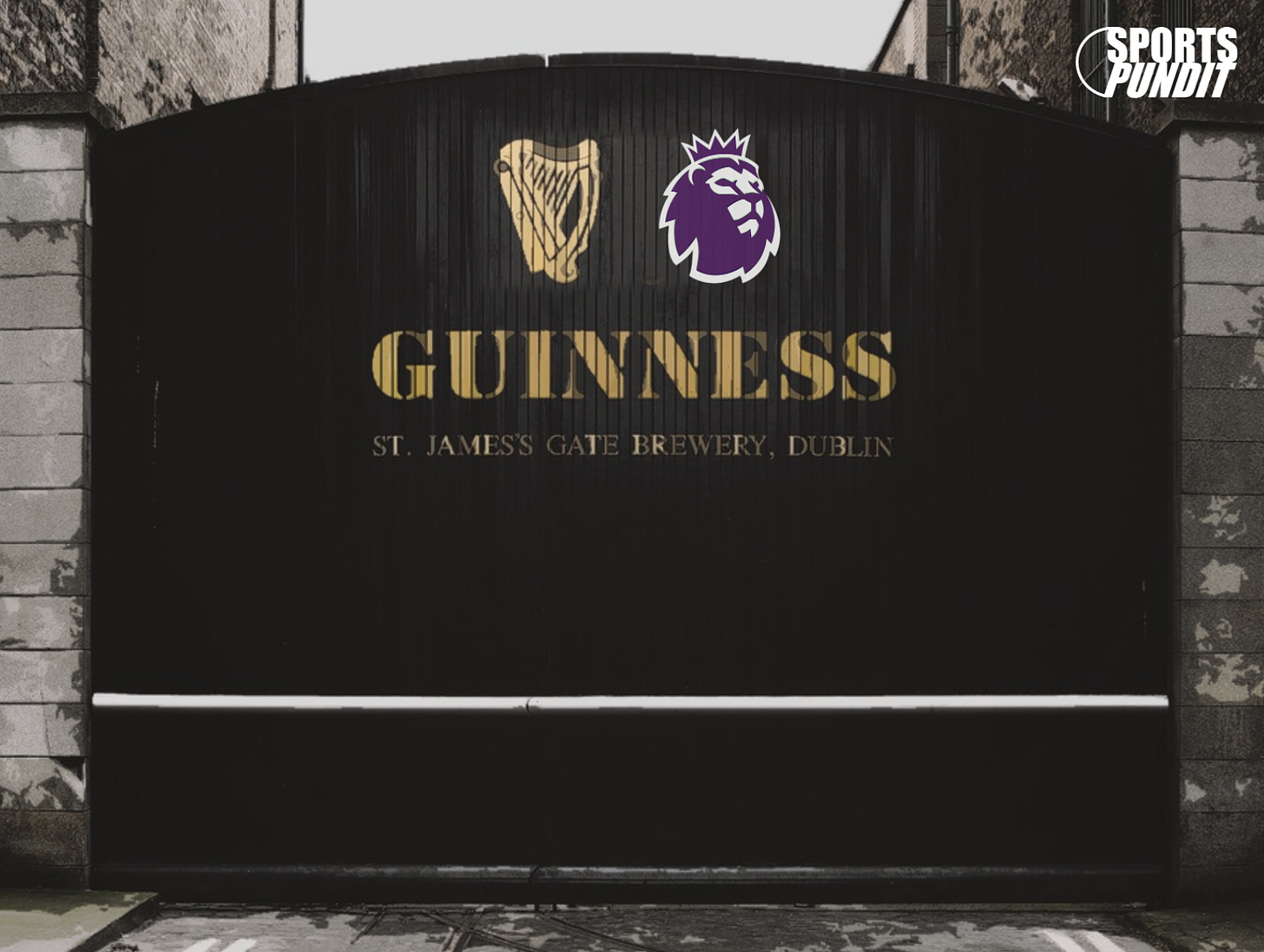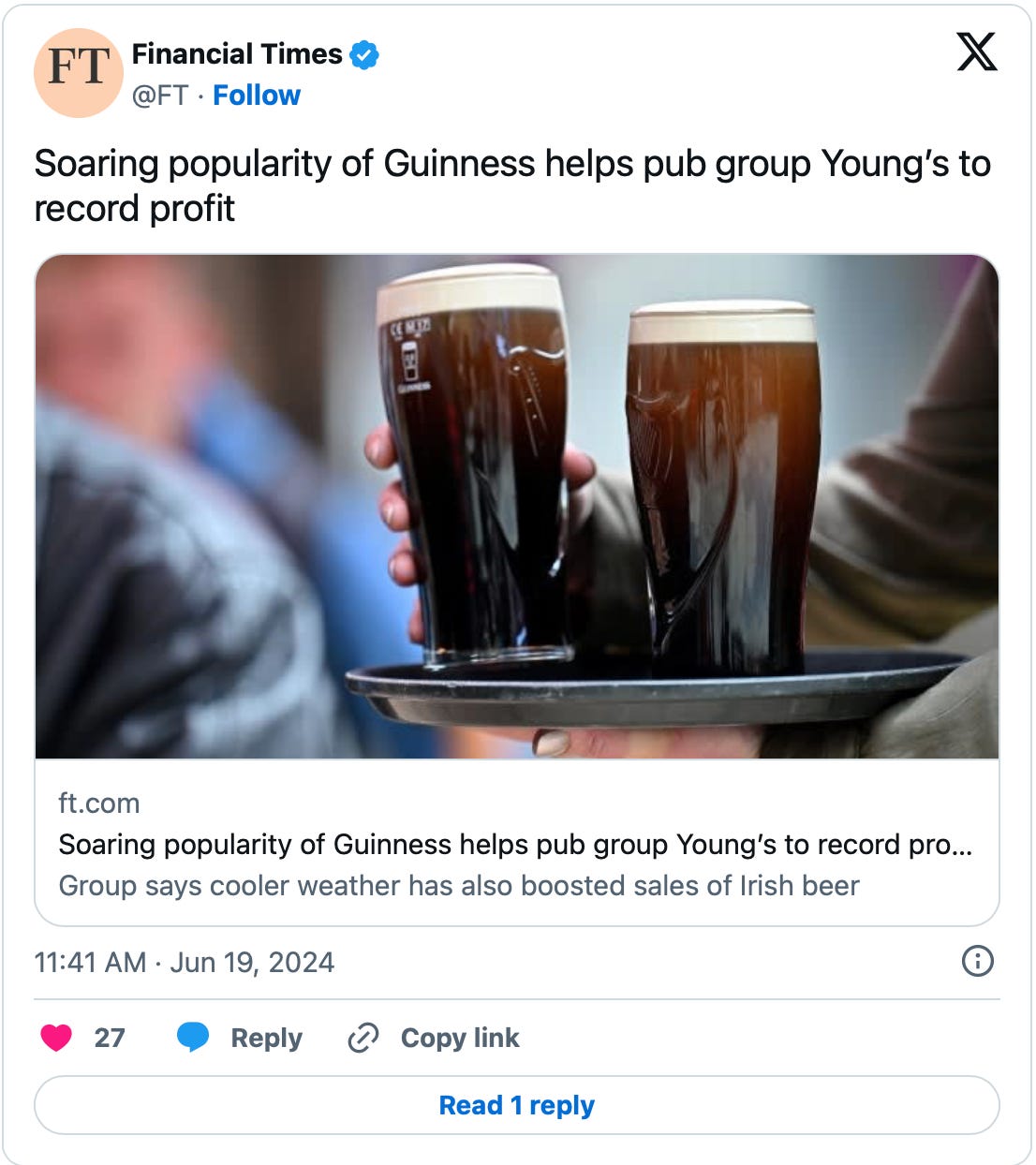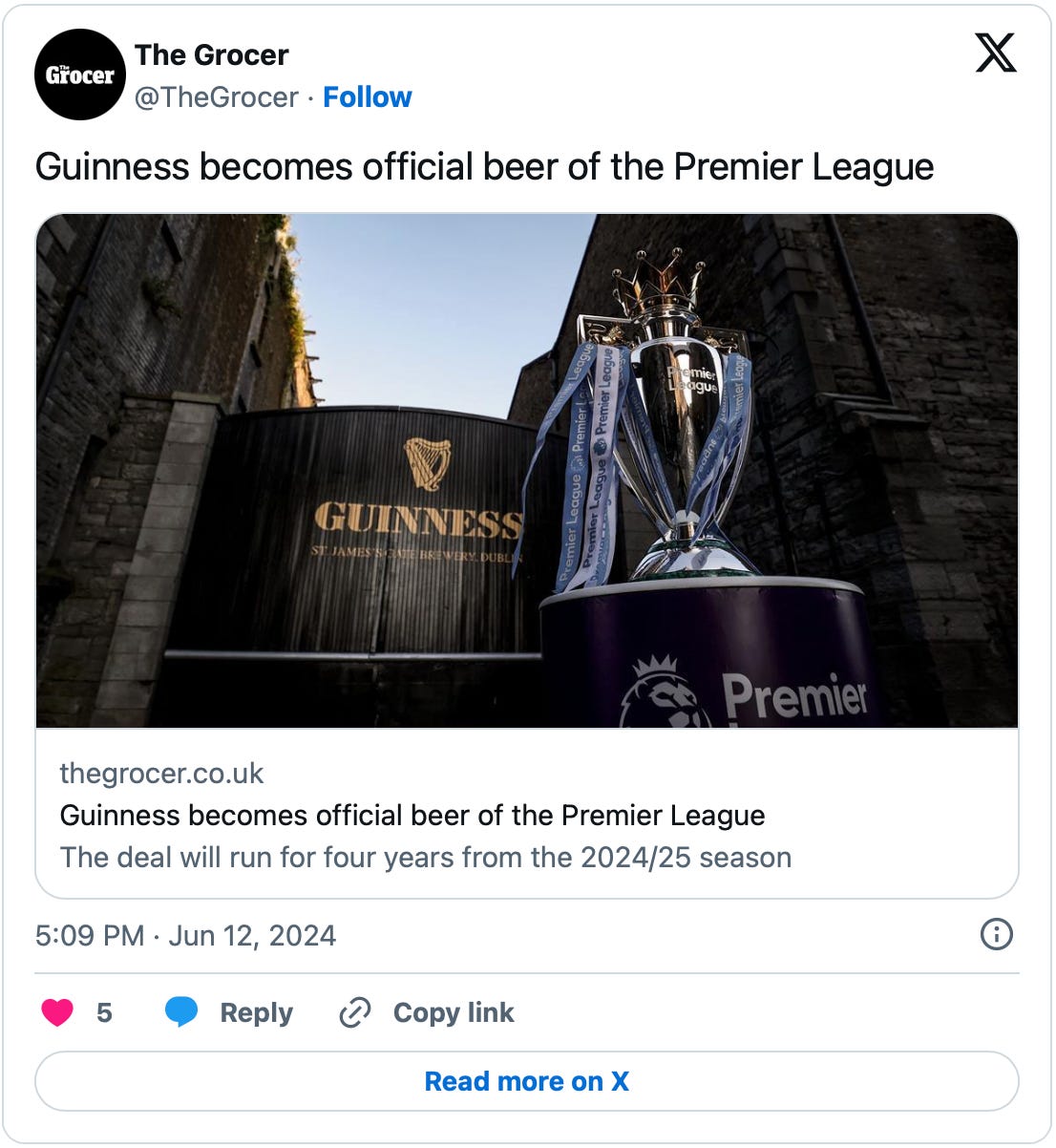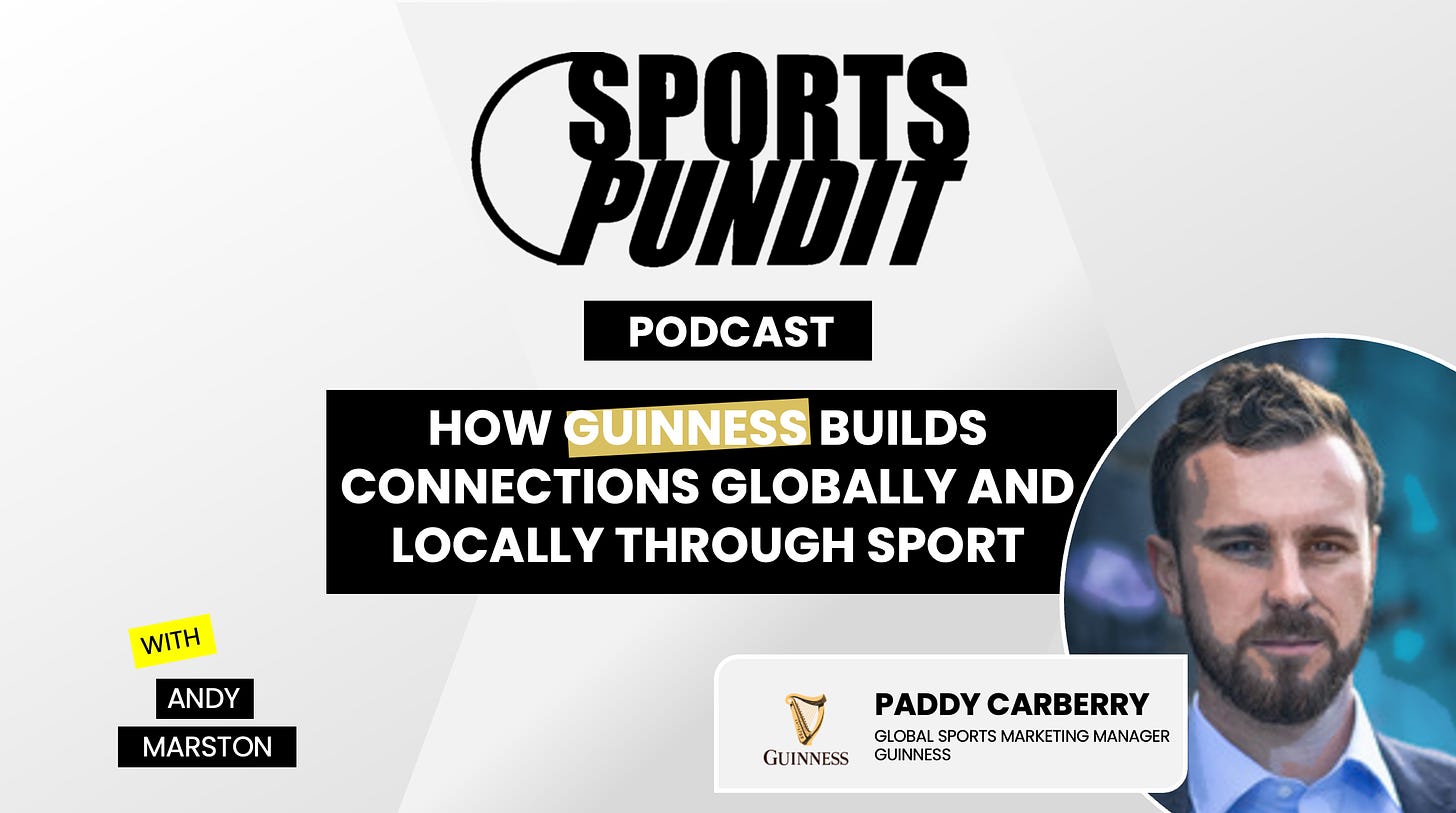Tapping into New Markets: How Guinness Leverages the Premier League Globally and Locally ⚽️
Guinness and the Premier League both independently, and now together, provide a strong example of brands that know how to balance global scale with local relevance.
Not yet a subscriber? Join over 3,000 sports business leaders, from Formula 1 to the Premier League, that read Sports Pundit every week to get impactful industry insights.
BIG IDEA
Guinness has experienced incredible growth over the past few years.
When you walk into a pub in the UK, there’s a good chance you’ll see people holding the brand’s iconic black-and-white pint—most likely aiming to ‘split the G’ on the logo.
The numbers back this up. Speaking on the Sports Pundit Podcast, Paddy Carberry, Guinness’ Global Sports Marketing Manager, shared that “about one in nine pints sold across the UK is a pint of Guinness.”
While Guinness has long been popular, the brand has emerged from the pandemic stronger than ever.
This is due, in part, to its commitment to supporting pubs during a challenging time by launching a fund to provide some relief, and its introduction of innovative products like Guinness Zero.
Ultimately, Guinness’ focus on being a brand that brings people together has also helped it thrive. As people rediscovered the importance of social gatherings, Guinness was ready to be the drink they turned to.
The Premier League, like Guinness, has shown resilience and growth post-COVID.
The league claims that an incredible 1.87 billion people follow them worldwide by interacting with their media presence weekly. Even more interesting is that 34% of these followers are new in the last four years, showing that the league’s fan base is not only huge but growing rapidly.
In the U.S., Premier League viewership has also reached new highs, with five of the six most-watched EPL matches in U.S. history airing last season, including Manchester City vs. Arsenal, which attracted 2.12 million viewers across NBC’s platforms.
The timing then for Guinness to become the ‘Official Beer of the Premier League,’ a four-year deal worth a reported £40 million, was no coincidence.
As Carberry explained, “Guinness on the trajectory it was on, we knew we needed something with real global license to operate, and the Premier League felt like the right thing at the right time to do that.”
For Guinness, the Premier League offers not just reach but frequency, allowing the brand to be ever-present.
“The big thing for me is frequency atop scale and resonance or relevance. There are very few properties that operate nine to ten months of the year, week on week, to deliver that level of viewership, whether in pubs, at home, or anywhere else.”
Guinness and the Premier League are now activated together in 88 countries, exceeding even the global reach of Guinness’ St. Patrick’s Day celebrations, “which is absolutely amazing when you think about the platform we've got and our ability to talk to so many consumers,” Carberry noted.
For both Guinness and the Premier League, while these headline numbers are eye-catching, the secret to their growth lies in being truly global while retaining local relevance.
This is also where the applicable learning comes in for other rightsholders and brands.
Much like the Premier League, Guinness adapts to the identities of different regions—whether it’s enjoyed as a draft pint in a UK pub or as a bottle of foreign extra stout in Africa or Asia. Carberry describes this approach as “a global brand with a local heartbeat.”
Both the Guinness and Premier League brands respect local nuances, creating experiences that feel distinct yet unified.
This flexibility is key to Guinness’ ability to connect across different markets. By empowering local marketing teams to tailor activations, Guinness ensures that its brand maintains a consistent identity while being culturally relevant.
For instance, Guinness created a series of ads that capture the diverse ways fans experience football, and specifically the Premier League.
In the UK, this meant creating an ad featuring a local Sunday league team in the Outer Hebrides, showcasing how football brings the Scottish island together. Meanwhile, in Seoul, their ad highlighted the phenomenon of fans avoiding spoilers all day so they can watch replays of their favourite teams’ games, which often air in the middle of the night.
Each ad taps into a specific fan experience and acknowledges that both Guinness and the Premier League turn up differently in different markets.
As Carberry put it, “What I really love about the Guinness brand and how we activate, and why it works so well for sport, is that it's rooted in communion. It’s all about how Guinness has this unique ability to unite people.”
No matter where fans are in the world, a Guinness can bring them together to enjoy the passion and camaraderie that sports inspire.
In an era where fans around the world consume media and participate in traditions differently, Guinness and the Premier League both independently, and now together, provide a strong example of brands that know how to balance global scale with local relevance.
By understanding and respecting cultural nuances, these two icons are connecting with fans in meaningful ways, ensuring that no matter where you are, a pint of Guinness can feel right at home.
THE PODCAST
Want to hear more from my conversation with Paddy?
We discuss their Premier League partnership, global fan behaviours, Guinness’ alignment with rugby, pouring rights, their pub and retail activation strategy, 'out-innovating' the internet, Guinness’ brand home at St. James's Gate and much much more.
Listen to the full podcast via the link below - and I’d love to hear what you think! 👇
Not yet a subscriber? Join over 3,000 sports business leaders, from Formula 1 to the Premier League, that read Sports Pundit every week to get impactful industry insights.








Great piece, Andy. Will add the episode to my listening list!